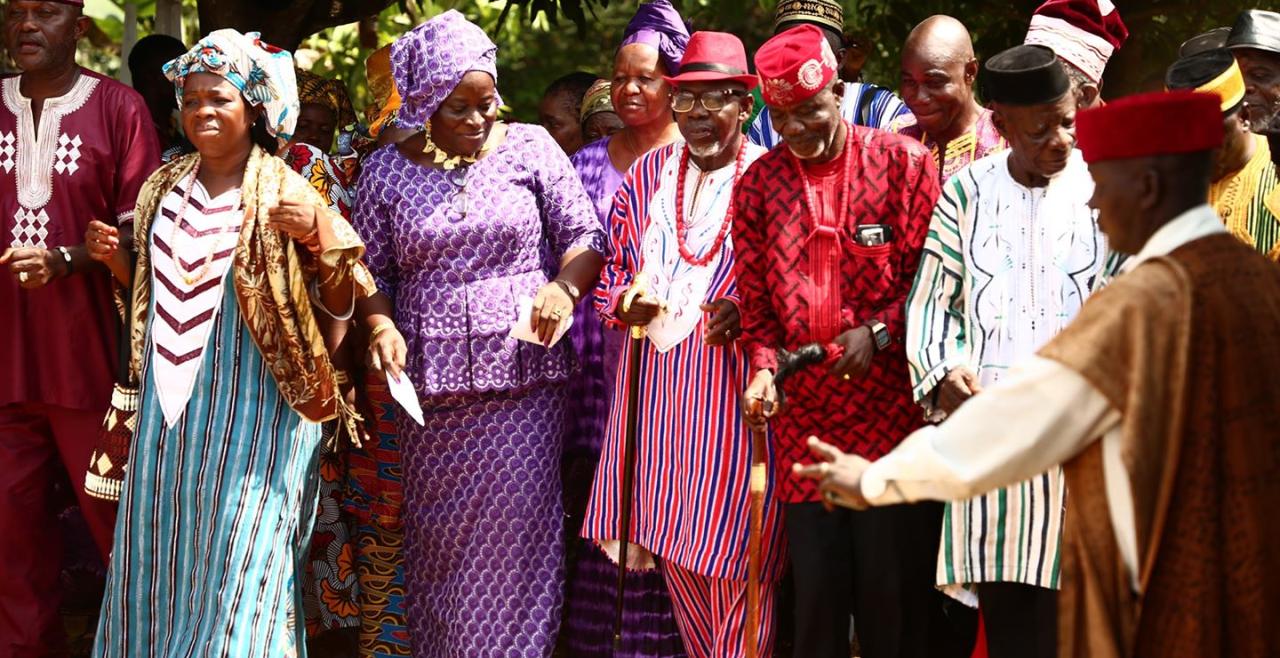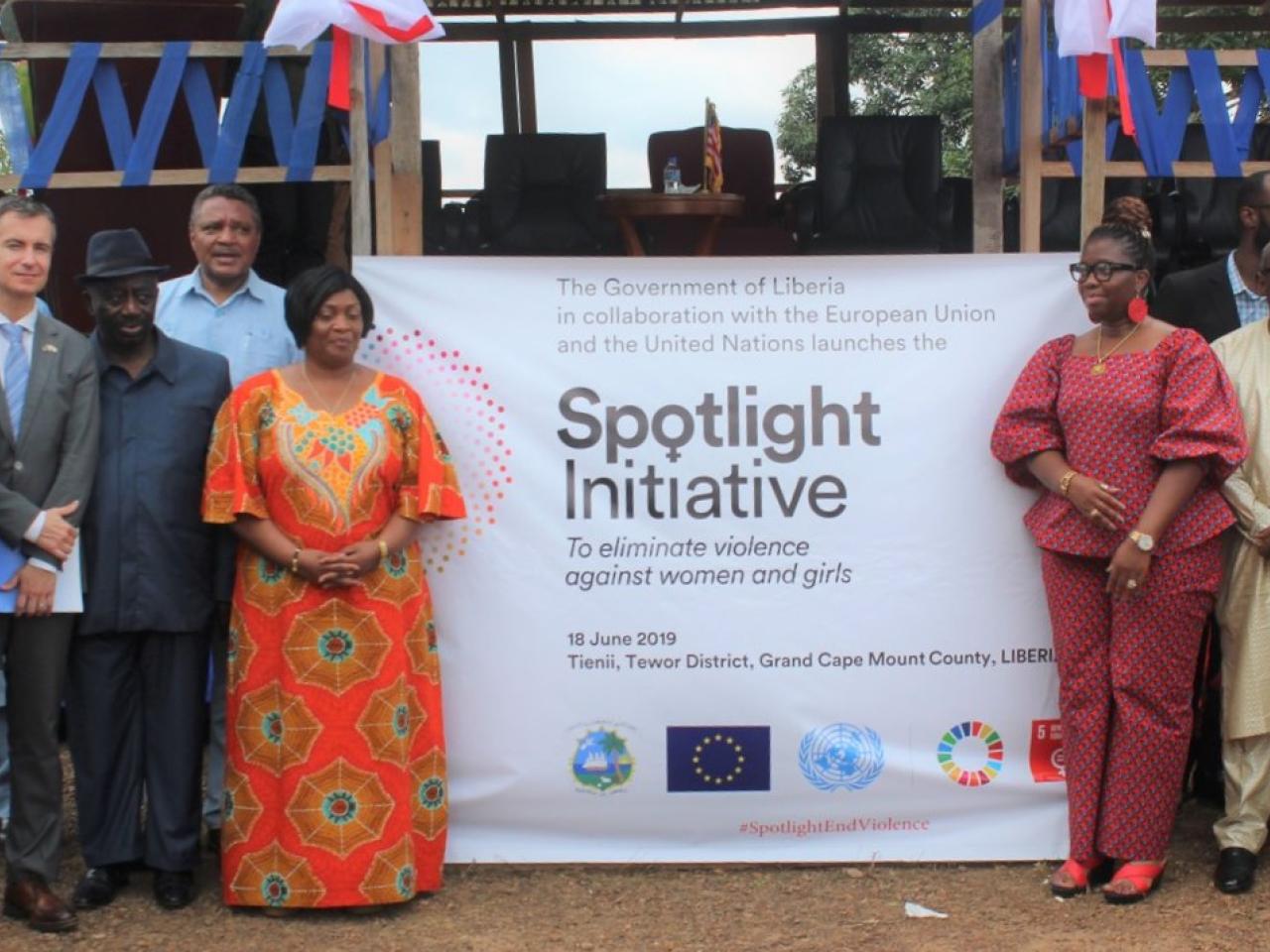Practitioners of female genital mutilation become part of the solution in Liberia

MONROVIA, Liberia – After 35 years of operating a bush school and initiating young women and girls into adulthood, Yatta Fahnbulleh finally decided it was time to close her doors and find another way to earn a living.
Until recently, Ms. Fahnbulleh was the owner of one of the largest bush schools in Tienii, a community in Grand Cape Mount County in north-western Liberia. She estimates that she initiated more than 200 girls into adulthood through a series of rituals that included female genital mutilation (FGM).
"Many people have asked me to leave bush business but my question has always been, ‘What will I do next to help my family?’" - Ms. Fahnbulleh, traditional practitioner
Female genital mutilation is a harmful practice that involves the removal or injury of external female genital organs for non-medical reasons. It is a violation of women’s human rights and can have devastating health consequences that include haemorrhaging, infection, chronic pain, childbirth complications and in severe cases, death. In spite of this, an estimated 50 per cent of women and girls in Liberia aged between 15 and 49 years have undergone FGM. It’s performed for financial as well as cultural reasons. Many practitioners, like Ms. Fahnbulleh, rely on FGM for their livelihood.
Alternative economic livelihoods
In December 2019, Spotlight Initiative supported the launch of the Alternative Economic Livelihood programme and broke ground for a vocational and heritage centre in Grand Cape Mount County. The programme teaches new skills to traditional practitioners who operate bush schools, providing an alternative source of income to replace FGM. Once built, the vocational centre will serve as a dedicated learning space.
It’s been a welcome development for many practitioners like Ms. Fahnbulleh, who wanted to stop performing FGM but didn’t know what they would do instead.
“The time has come for me to change after 35 years in the business of bush activities,” says Ms. Fahnbulleh. “Many people have asked me to leave bush business but my question has always been, ‘What will I do next to help my family?’ Now that you people have answered my question, I will join you to raise awareness of the vocational and heritage centre and the new livelihood project for us, the traditional zoes (leaders).”
“I feel good about the opportunity to learn and to earn regular income.” - Ms. Fahnbulleh
Opportunity to learn and earn
Vocational and heritage centres present many opportunities to learn new skills, including climate-smart agriculture, business development, literacy, catering, soap-making and tailoring.
“I feel good about the opportunity to learn and to earn regular income outside of the usual thing I have been doing for years,” says Ms. Fahnbulleh. “I see the new project as a good opportunity that all the traditional practitioners across Liberia should be proud to receive with both hands.”
At the launch of the programme, Ms. Fahnbulleh put her new skills to use.
“To serve as caterer, where everybody enjoyed the food I cooked and to receive payment, I consider this life changing,” she says.
The new vocational centre is being built on the land where Ms. Fahnbulleh’s bush school once operated. With the launch of the Alternative Economic Livelihood programme, she waived her rights to the community-owned land to clear the way for construction.
A total of €16 million is being invested in ending violence against women and girls in Liberia through Spotlight Initiative, with four vocational and heritage centres planned for Nimba, Lofa, Grand Cape Mount and Montserrado counties.
By Gloria Gayani. Photo: Guests attend the launch of the Alternative Economic Livelihoods programme. UN Women.

